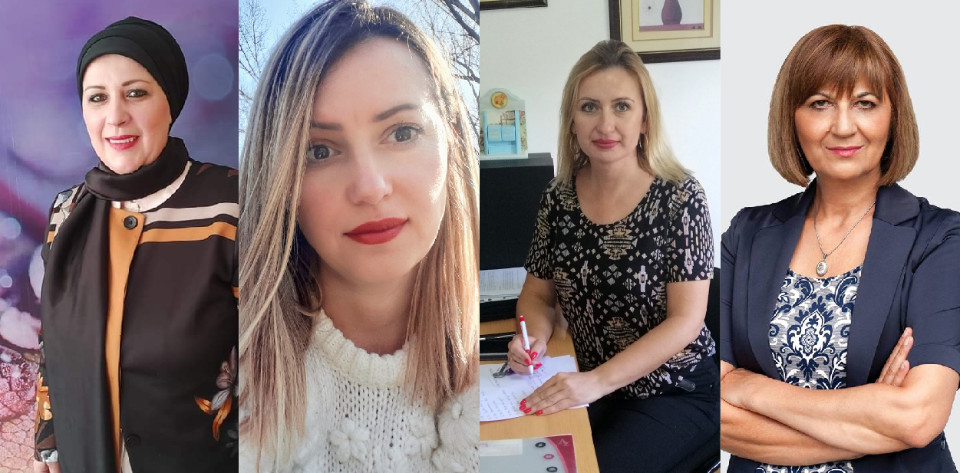Women’s shelters in Bosnia and Herzegovina fight to keep doors open during the COVID-19 pandemic
Date:

Safe houses in Bosnia and Herzegovina are struggling to provide adequate protection to women survivors of violence and their children, as domestic violence is likely to be on the rise due to the COVID-19 crisis. As part of the response to the crisis, UN Women conducted a rapid assessment of the status of specialized services provided by eight shelters in the country to find out their immediate needs in order to sustain their activities. Thanks to this assessment, UN Women’s work will be reshaped under the regional programme on ending violence against women, “Implementing Norms, Changing Minds,” funded by the European Union.
Because of the isolation measures and movement restrictions during the pandemic, women confined to their homes have little recourses if they experience violence at home. Although official statistics are not available, there has been an increase in calls to hotlines and requests for psychological counselling and legal aid.
While all safe houses in the country remain open and functional to provide shelter, psychosocial support and other support services to survivors and their children, they lack capacities and unable to receive new beneficiaries due to high risk of infection and inability to provide space for self-isolation.
This is the case with the safe house “Foundation of Local Democracy” in Sarajevo, the capital, which cannot shelter new beneficiaries. “We have been forced to suspend admission of new beneficiaries, and women who report violence are now unable to receive protection of a safe house,” explains Mubera Hodžić Lemeš, the manager of the safe house. According to Lemeš, the situation is causing increased stress and anxiety for women who have already survived trauma.
One of the biggest issues that safe houses report is the lack of personal protective equipment for shelter staff due to a shortage of supplies on the market and the already limited financial resources of safe houses. Safe houses are in dire need of masks, gloves, hand sanitizers, disinfectants, and other protective equipment.
According to the rapid assessment, the needs of safe houses are growing, which include trained staff and/or volunteers to operate psychosocial services and funding for utilities, food, clothes and medicine for beneficiaries, as well as electronic equipment like tablets, computers and TV sets so that children, placed in the safe houses, can continue their education remotely.
“It is crucial to secure funds for basic expenses such as food and hygiene products, but also for additional staff, at least for the upcoming three or four months,” emphasizes Dijana Tadić, Executive Director of the safe house run by organization Žena BiH in the city of Mostar.
So far, none of the shelters have received support from any level of government to assist them in dealing with the COVID-19 crisis. In some cases, international funding has been suspended, while local funding remains uncertain.
Despite the lack of financial support in times of crisis, safe houses have been trying to offer their regular services, such as psychosocial support, counselling and legal aid, by using phone, e-mail and other digital means. Radmila Žigić from Foundation Lara in Bijeljina, northeast Bosnia and Herzegovina, says that the pandemic has made them research new technologies and platforms for providing counselling and aid.
“We are providing counselling by phone, e-mail, Facebook and our website, and constantly researching new possibilities to respond to the needs of our beneficiaries while at the same time reducing social contact and possible risks,” says Žigić, while adding that most urgent cases can be attended at the premises of the safe houses, but that they are trying to limit that due to risks of infection.
Amela Bašić Tomić from the safe house run by Foundation United Women in Banja Luka points out: “Women might be in a situation where they are unable to call the SOS phone lines due to the constant presence of the perpetrator of violence.”
Also, due to social distancing measures, all shelters were forced to discontinue their outreach activities, such as those concerning economic empowerment. The shelters need new tools and expertise on how to operate in this type of crisis – especially from a health/sanitation perspective.
Representatives of the safe houses are highlighting that women will be heavily affected by the socio-economic impacts of the crisis – poverty, social distancing, and lack of access to essential services. “Previous beneficiaries who have since then begun to rebuild their lives have lost their jobs due to the crisis and find themselves unable to provide for their basic needs,” says Amela Bašić Tomić.
The assessment also found that while there have not been any reports yet on gaps in response by frontline institutions (police, centers for social work, health care), these services will be compromised, overburdened and preoccupied with curtailing the spread of the infection. This could leave little space for a coordinated and timely response to cases of domestic violence.